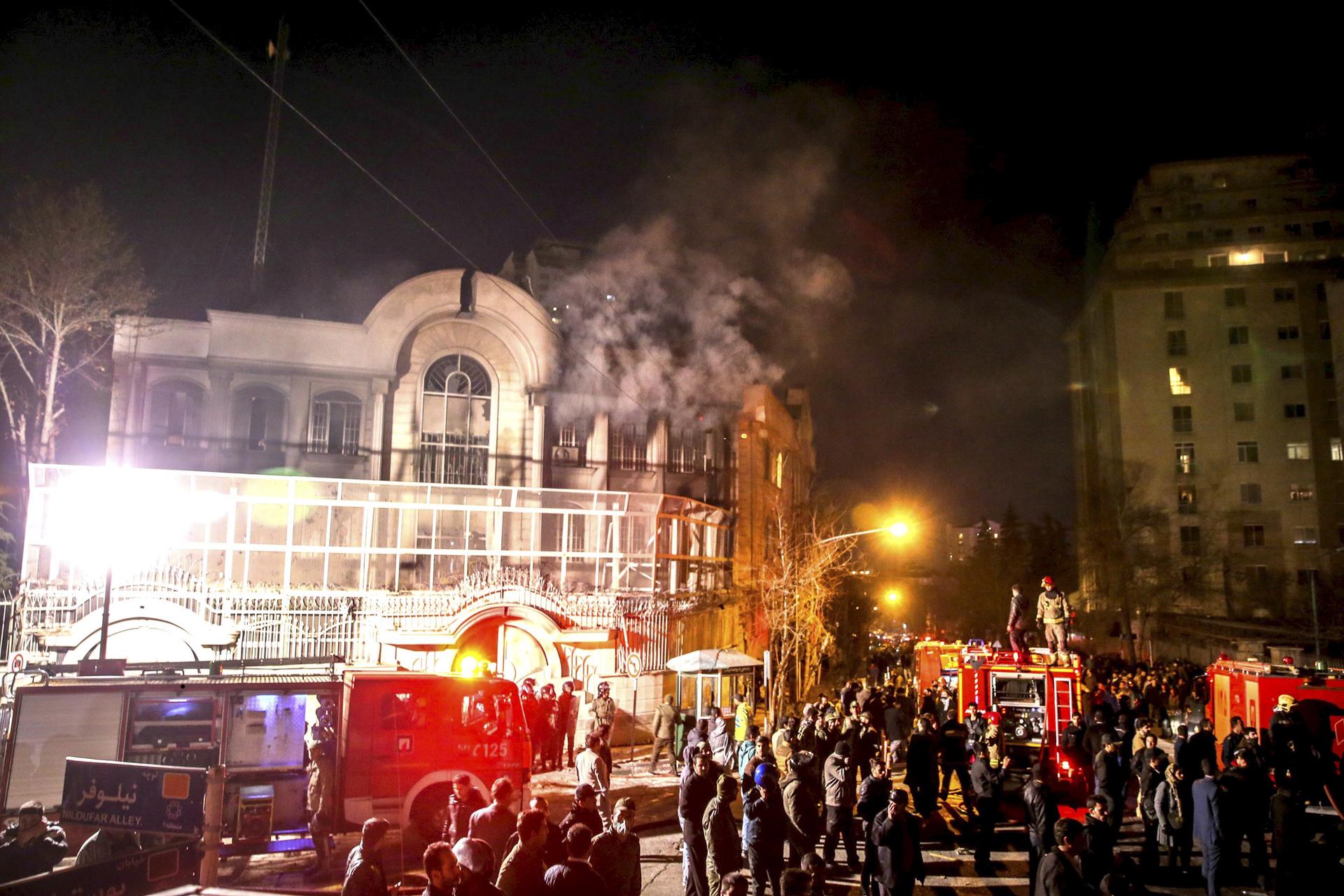Flames rise outside the Saudi Arabian Embassy in Tehran on Saturday. Saudi Arabia broke off diplomatic relations with Iran on Sunday.
And now it's Kuwait.
In just the latest move in a deepening regional split, Kuwait is recalling its ambassador from Tehran. The recall on Tuesday follows the break in ties with iran by Saudi Arabia, Bahrain and Sudan. The United Arab Emirates announced it was downgrading its diplomatic team in Tehran.
Saudi Arabia's decision to break relations with Iran can be traced back to Saudi Arabia's Friday execution of a top Shiite cleric — one of 47 people executed that day by Saudi officials.
The execution of Sheikh Nimr al-Nimr sparked protests in the region. In Iran, protesters attacked and ransacked Saudi Arabia's embassy in Tehran and its consulate in Mashad. Iran's supreme leader, Ayatollah Ali Khamenei, threatened divine retribution for the killing of the cleric, whose only crime, he said, was criticizing the Saudi goverment.
The leader of Lebanon's Shiite Hezbollah movement, Hassan Nasrallah, went even further, accusing the Saudi ruling family of seeking to ignite a civil war between Sunni and Shiite Muslims across the world. The BBC quoted Nasrallah as telling a crowd that the blood of Sheikh Nimr would "plague the Al Saud [family] until the Day of Resurrection," prompting cries of "Death to the Al Saud!"
Earlier Sunday, Washington called for cooler heads in the region, hoping the two powers would somehow work together to help end catastrophic conflicts in Syria and in Yemen. After the Saudi anouncement, State Department spokesman John Kirby said: "We believe diplomatic engagement and direct conversations remain essential in working through differences."
But the issues between the two nations were fraying long before Friday. High Saudi oil production has depressed petroleum prices, a key driver of Tehran's economy.
Saudi Arabia, while spending tens of billions on US weaponry in recent years, fears the US-led deal with Iran on nuclear weapons could lead Tehran to increase its influence in the region. The executions may have been intended to send a message to ISIS cells inside Saudi Arabia and also to reassure conservative Sunnis.
The rupture in relations raised market and oil price fears that may prove unwarrented, said Micha'el Tanchum, an energy and geopolitics fellow at the Atlantic Council.
Saudi Arabia has faced criticism from many sides for its accelerating rate of executions and for the killings in the Saudi-led invasion of neighboring Yemen. The mass executions Friday were the highest single-day total since 1980, according to Human Rights Watch. In 2015, Saudi Arabia executed 158 people, the highest total in two decades.
The diplomatic rupture, tweeted BBC World Service reporter Rana Rahimpour, has grave consequences for the region.
We’d love to hear your thoughts on The World. Please take our 5-min. survey.
